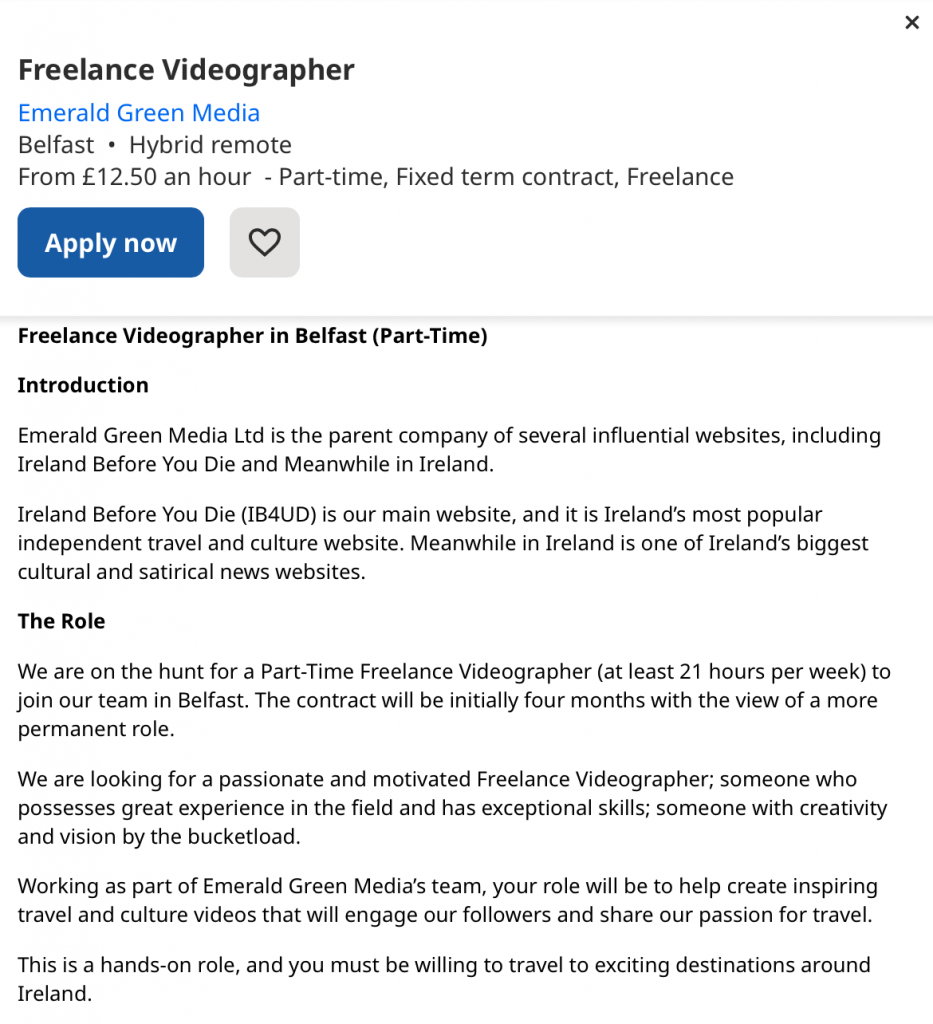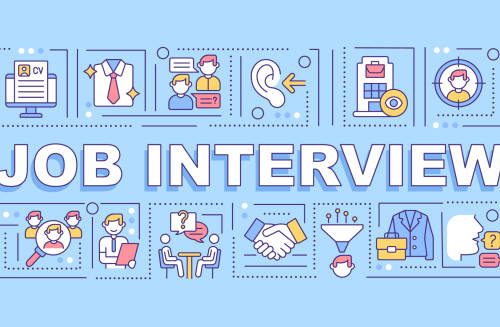SIMULATED INTERVIEWS
Martin John Yate (2015, 24) describes an interview as, ‘a two-way discussion designed to help the interviewer learn more about you, your background, and your abilities, and to help you learn more about the company and the job you are applying for’. This makes an interview seem like a straightforward experience, with nothing to get stressed about. Unfortunately, I haven’t found this to be the case. Like most people, I can get extremely anxious about interviews, and I was dreading the simulated interview process. However, when it came to the day, I gained a lot more than I thought I would have. To reflect on this process, I will be employing Gibb’s reflective cycle (Gibbs, 1988), as it will allow me to seriously reconsider and evaluate the interviews, as well as giving me an opportunity to look to the future, and have an action plan for any interview I have in the future.

DESCRIPTION
The first step I took was finding a suitable job to “apply” for, and I found a posting for a videographer within a tourism company in Ireland. I met many of the requirements of the posting, and felt it was a job I would apply for when I finish university.

On the day of the interviews, I was the second last in my group to go, giving me the chance to interview my peers. When it came to my turn, I left the room for five minutes so the group could prepare their questions, and when I came in I treated my peers as serious employers, greeting them with a handshake. Yate (2008, 107) states that, ‘a confident and positive handshake helps break the ice and gets the interview moving in the right direction’. I was asked several questions, and the interview lasted around ten minutes. Most of the questions I was asked were based on the job posting, but I was also asked some more unique questions, such as, “What three items would you bring to a desert island?” And “What would you do if you were the last person on Earth?” These questions kept the interview interesting, and helped me to remain relaxed. When the interview was over, I thanked my peers for their time, and received my feedback form.

FEELINGS
On the days leading up to the interview, I felt very nervous. Gregory, Healy and Mazierksa (2008, 108) state that, ‘few of us are immune to the terror of interviews and it is perfectly normal for the adrenaline to be flowing’, and this was definitely true for me. However, after interviewing my peers, I felt far more relaxed than I had expected to. It was comforting to know that we were all in the same boat. It also gave me an opportunity to see what an interviewer would see as a positive or a negative, which helped me shape some of my own answers.
After my interview, I felt as though it went okay, and at the least, I had provided an answer for every question. One question did stump me, a question about a time I had solved a problem. This made me quite flustered, but I took a second to think and eventually provided an answer.
EVALUATION
My written feedback form from my peers was mainly positive, which was a huge relief. I scored a 5/5 on two of the sections, and a 4/5 on the other. Their comments have given me an opportunity to see what went well for me, and what I could have done better, from an interviewers perspective. My positives were that I provided an answer for every question, I had good posture, and I seemed confident and well spoken. My negative feedback was that I could have related my answers back to the questions more, which I agree with. For some of my answers, I felt as though I was rambling and getting distracted, rather than remaining concise and to the point.
ANALYSIS
When I look back on my interview now, I can see that I should have prepared more. If I had gone over the job posting more, or reflected on my own CV I think I would have been able to relate my answers back to the questions, and the job, a lot more. One thing I think that would have helped me throughout my interview, would be the STAR method of structuring answers.

If I had used this when giving my answers, I could have stayed more concise and focused on what the question was asking for, rather than rambling.
CONCLUSION
I believe that the simulated interviews were extremely helpful in preparing me for any interview I may have in the future. They have helped me recognise my strengths and weaknesses when it comes to interviews, as well as giving me a chance to see what kind of questions will be asked at any interview I have for a post-grad job. One other way the simulated interviews have helped me, is that they have shown me that interviews aren’t as nerve-racking as they seem, and I hopefully won’t feel as anxious going into any interviews in the future.
ACTION PLAN
In future, I will give myself more time to prepare for an interview, and will practice the STAR method of answering questions. I plan to study any job posting’s requirements more, in order to give focused answers that relate to the job. Finally, I will try and remain more calm before any interview, which will hopefully allow me to be more confident and relaxed when giving my answers.
BIBLIOGRAPHY
Eatough, Erin. (2022) “How to use the STAR interview methods for success.” Better up. Accessed February 21, 2022. https://www.betterup.com/blog/star-interview-method
Gibbs, G. (1988). Learning by Doing: A Guide to Teaching and Learning Methods. London: FEU.
Gregory, G., Healy, R.J. and Mazierksa, E. (2008). Careers in Media and Film The Essential Guide. London Sage Publications Ann Arbor, Michigan Proquest.
Yate, M.J. (2008) Great answers to tough interview questions. London: Kogan Page.
You May Also Like

To Be Or Not To Be – That Is The Interview Question
23 February 2023
BE A S.T.A.R 🌟
14 February 2023

